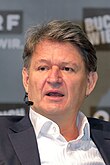
Elections to the European Parliament take place every five years by universal adult suffrage; with more than 400 million people eligible to vote, they are the second largest democratic elections in the world after India's.
An election was held in 2009 to elect the delegation from Austria to the European Parliament. Austria will have 17 seats in the European Parliament, instead of the 18 that the country had before the re-allocation of seats.

Legislative elections were held in Austria on 28 September 2008 to elect the 24th National Council, the lower house of Austria's bicameral parliament. The snap election was called after Austrian People's Party (ÖVP) withdrew from the ruling grand coalition with the Social Democratic Party of Austria (SPÖ) in July. Due to dissatisfaction with the governing parties, the opposition and minor parties were expected to make significant gains. Opinion polling indicated that up to seven parties could potentially win seats.

Presidential elections were held in Austria on 25 April 2010, the twelfth election of an Austrian head of state since 1951. The candidates were President Heinz Fischer, Barbara Rosenkranz (FPÖ) and Rudolf Gehring (CPÖ). Heinz Fischer won with just under 80% of the valid votes. Voter turnout was a historic low of 54%.

The German part of the 2009 European Parliament election was held on Sunday, 7 June. A total of 26 parties competed for the 99 seats reserved for Germany in the European Parliament. In the previous election of 2004, the six parties which were represented in the German national parliament (Bundestag) from 2005 to 2013, had entered the European Parliament by overcoming the 5% election threshold. The same parties entered the European Parliament this time. None of the other parties managed to gain more than 1.7%, but together the small parties exceeded 10% for the first time. At 43.3%, the voter turnout was just over the all-time low in the previous European election in Germany (43.0%).
The number of elections in Hamburg varies. Hamburg has a state election every five years, the elections for the state parliament. There are also elections to the federal diet of Germany, the local elections of the diet of the boroughs (Bezirksversammlungen) and every five years to the European Parliament. All elections take place by universal adult suffrage and are regulated by law.
A legislative snap election for the National Council in Austria was held on 28 September 2008. The previous election was held on 1 October 2006. The election was caused by the withdrawal of Austrian People's Party leader Wilhelm Molterer from the governing grand coalition on 7 July 2008. Due to dissatisfaction with the grand coalition and the two main parties, it was widely expected to be a realigning election, with gains for the opposition and up to seven parties expected to be in the National Council after the election. The losses for the government parties resulted in strong gains for the far right, while neither the Liberal Forum nor the Citizens' Forum Austria gained as much as 2% of the vote, defying earlier expectations. The result of the election was seen as strong for the far-right and in support of Eurosceptics.
A legislative snap election for the National Council in Austria was held on 28 September 2008. The previous election was held on 1 October 2006. The election was caused by the withdrawal of Austrian People's Party leader Wilhelm Molterer from the governing grand coalition on 7 July 2008. Due to dissatisfaction with the grand coalition and the two main parties, it was widely expected to be a realigning election, with gains for the opposition and up to seven parties expected to be in the National Council after the election. The losses for the government parties resulted in strong gains for the far right, while neither the Liberal Forum nor the Citizens' Forum Austria gained as much as 2% of the vote, defying earlier expectations. The result of the election was seen as strong for the far-right and in support of Eurosceptics.
The 2014 European Parliament election in Austria was held on 25 May 2014 in Austria. As a result of the Lisbon Treaty Austria held 19 seats in the European Parliament, but with Croatia joining the Union in 2013, Austria's allocation was reduced to 18 seats.
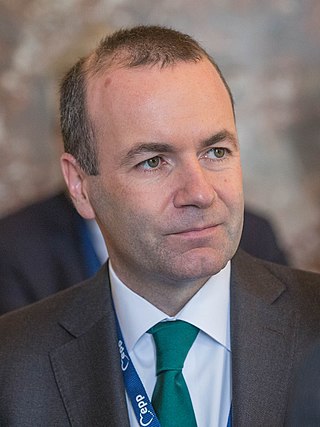
The 2019 European Parliament election was held between 23 and 26 May 2019, the ninth parliamentary election since the first direct elections in 1979. A total of 751 Members of the European Parliament (MEPs) represent more than 512 million people from 28 member states. In February 2018, the European Parliament had voted to decrease the number of MEPs from 751 to 705 if the United Kingdom were to withdraw from the European Union on 29 March 2019. However, the United Kingdom participated alongside other EU member states after an extension of Article 50 to 31 October 2019; therefore, the allocation of seats between the member states and the total number of seats remained as it had been in 2014. The Ninth European Parliament had its first plenary session on 2 July 2019.

Legislative elections were held in Austria on 15 October 2017 to elect the 26th National Council, the lower house of Austria's bicameral parliament. The snap election was called when the coalition government between the Social Democratic Party of Austria (SPÖ) and Austrian People's Party (ÖVP) was dissolved in May by the latter party's new leader Sebastian Kurz.

Presidential elections were held in Austria on 24 April 2016, with a second round run-off on 22 May 2016. However, the results of the second round were annulled and a re-vote took place on 4 December 2016.
Wandel is an Austrian left-wing and progressive political party led by Fayad Mulla. It is part of the pan-European coalition DiEM25.
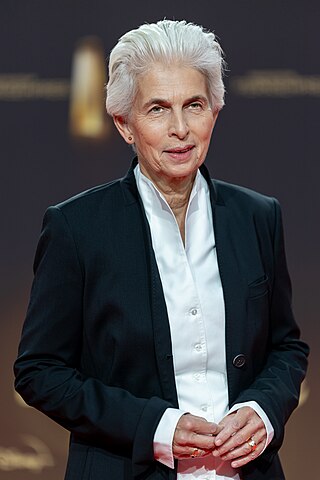
The 2024 European Parliament election is scheduled to be held on 6 to 9 June 2024. This will be the tenth parliamentary election since the first direct elections in 1979, and the first European Parliament election after Brexit. This election will also coincide with a number of other elections in the European Union.
The 2024 European Parliament election in Germany is scheduled to be held on 9 June 2024. This will be the tenth parliamentary election since the first direct elections in 1979, and the first European Parliament election after Brexit.
Legislative elections will be held in Austria by autumn 2024 to elect the 28th National Council, the lower house of Austria's bicameral parliament.

The Beer Party is an Austrian satirical political party. Founded in 2014, it was originally known as the Beer Party of Austria and used the corresponding abbreviation BPÖ until its renaming in 2020. The party's activity is confined to Vienna, where BIER first appeared on ballots in the 2019 Austrian legislative election and appeared again in the 2020 Viennese state election. As of 2020, it has been unable to amass the votes required for representation in the National Council, Federal Council, or the Landtage, claiming 0.6% of Viennese votes in 2019 and 1.8% in 2020. However, the party was able to win mandates in 11 of Vienna's districts. The party is organized purely at the federal level without state parties.

Presidential elections were held in Austria on 9 October 2022. Incumbent Alexander Van der Bellen from the Greens was eligible for one more term and ran for re-election. About 6.36 million voting-age citizens were eligible to vote.
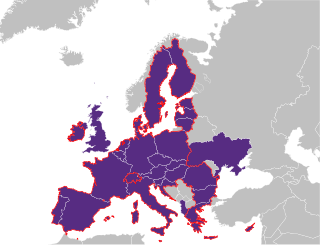
Volt Austria is a socialliberal political party in Austria and the Austrian chapter of Volt Europa a progressive and Eurofederalist pan-European political party and movement.
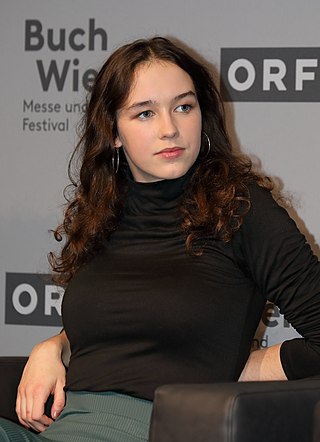
Lena Schilling is an Austrian climate activist. She is the Austrian Green Party's top candidate for the 2024 European Parliament elections.




